Is your car shaking rattling your nerves? Cars and trucks are engineered to ride smoothly, and when they shake, it’s an indication that something is wrong and needs to be fixed.
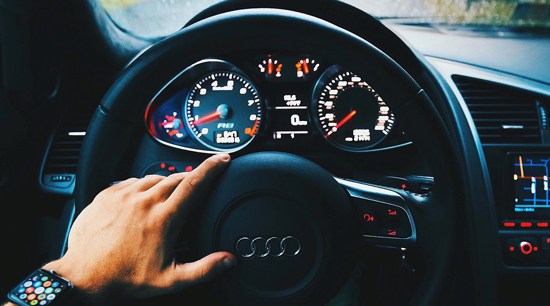
Vehicles in good operating conditions shouldn’t shake, and knowing how to identify the causes will aid you in avoiding unnecessary expenses when you take your car to a mechanic.
autobahn-performance.com explains some of the reasons you may experience shaking, engine vibration, and power loss.
Automotive Steering Wheel and Brake Pedal Shaking
Any time your vehicle shakes, it can be worrisome and unsettling. When that shaking comes from the steering wheel or brake pedal, here are some of the more common culprits:
Out of Round – Brake rotors can become warped either by excessive braking (riding the brakes), or by sudden braking at speeds over 40mph. This warping is known as “out of round,” and will cause your steering wheel to shake or vibrate when the brakes are applied.
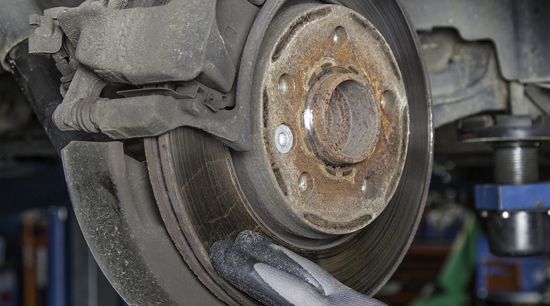
Sticking Brake Caliper – With similar effects to “out of round” rotors, shaking may occur when one of the brake calipers sticks on the rotor.
Unbalanced Tires – When driving at speeds between 45 and 60mph, shaking may occur in the steering wheel due to unbalanced tires or uneven wearing of the tires.
This one can be tricky because the shaking or vibration may disappear at higher or slower speeds. Nevertheless, once you have detected the problem, you should get it diagnosed and repaired as quickly as possible.
CV Axle Shaft Assembly – More commonly associated with a clicking noise while turning, a bad or failing CV axle shaft may also cause your vehicle to shake while braking.
Front Vs. Back Brakes – When steering wheel shaking or vibration is caused by an issue with your front brakes, the shaking will be more prominent when braking. Conversely, when the problem is in the rear brakes, the shaking will be felt more in the brake pedal.
Car Engine Vibration and Power Loss
Engine vibrations resonate throughout the entire vehicle and may result in power loss, indicating a need for an immediate visit to your mechanic. While there are a vast number of reasons your engine may vibrate and lose power, here are some of the more common factors (the check engine light may be triggered by any of the following):
Spark Plugs – When a spark plug fails, your motor will take on a whole new persona. In combustion engines, spark plugs fire in sequence to maintain engine pressure, and provide power to propel the vehicle.
When a spark plug stops firing, the internal pressure of the motor drops (resulting in power loss), and the remaining cylinders are left to compensate (causes vibration and possible violent shaking).
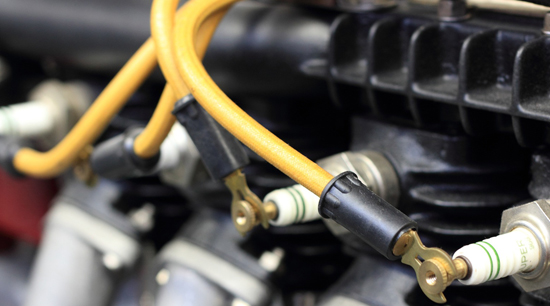
Example: To give you an idea of how to equate the stress of the motor under these circumstances, imagine the car having 3 round tires and one square tire.
Spark Plug Wires – Sometimes called ignition coils or ignition wires, your spark plug wires are responsible for carrying the electrical current to the spark plug, so it can fire in sequence.
When one of these wires fails, the symptoms are almost – if not – identical to a failed spark plug.
If your vehicle is equipped with an RPM gauge, you can catch a failing spark plug wire before it ultimately fails. When stopped at a red light or stop sign, you may notice a slight bounce or repeated dip in the RPM needle. This bounce may also be accompanied by a slight muffling of the engine’s normal sound. This is a common symptom of a plug or wire electrical current problem.
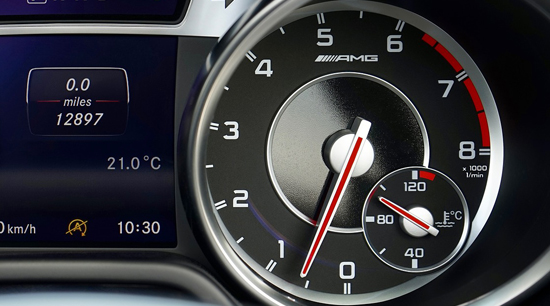
Air or Vacuum Hose – Another common cause for engine vibration and power loss is when air or vacuum hoses come loose, begin to leak, or rupture.
The three necessities for all combustion engines are air, fuel, and spark. If any of the three are delivered out of proper proportion, your engine will struggle, lose power, and vibrate.
Incorrect Gasoline Octane – It may seem counterintuitive, but higher octane gasoline burns slower than its lower octane counterpart.
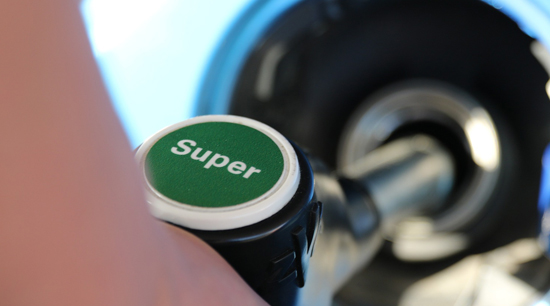
If your engine is rated for an 87 octane gasoline and you use a higher octane fuel, your engine’s inability to correctly burn the fuel will result in reduced power, higher fuel consumption, and potential engine shaking.
If you’re interested in your car getting better gas mileage, visit autobahn-performance.com/audi-vw/fuel-economy-10-tips-improve-vehicle-gas-mileage/
Engine Sludge – Over time, engine oil can break down and leave deposits throughout your engine. As these deposits accumulate, they form a thick, difficult to remove sludge that can cause power loss, shaking, and can lead to expensive repairs.
Likewise, when your engine’s oil level gets too low, the engine will not be properly lubricated and can lose power, overheat, and result in complete engine failure.
This situation can be avoided by having your oil changed at proper intervals for your vehicle’s make and model. For more on this, read Why and When I Should Get My Oil Changed.
Car Shaking When Stopped or Idling
If your vehicle is shaking when you are idling at a complete stop, the problem is likely to be damaged or broken motor mounts or transmission mounts.
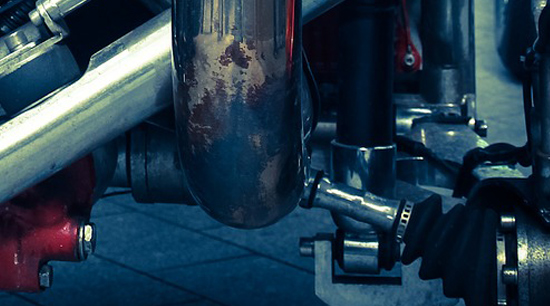
Broken motor or transmission mounts can result in severe motor shaking and should be fixed before causing other serious mechanical problems.
Why Does My Car Shake?
A car that shakes unusually needs to be fixed. Whether it’s the steering wheel, brake pedal, or engine, be attentive because the solution may be easy or a more complex issue.
In this article, you discovered many of the causes of shaking or vibrating in the steering wheel, brake pedal, engine, or the entire vehicle. You also uncovered some of the reasons a motor can lose power.
Your failure to have your car serviced or fixed after detecting vibrations and shaking can result in further mechanical failure, seizing of the motor, and expensive repairs that can be avoided by a simple visit to your mechanic.
Sources:
http://citeseerx.ist.psu.edu/viewdoc/download?doi=10.1.1.428.9129&rep=rep1&type=pdf
https://xwebforums.com/forum/index.php?threads/possible-causes-of-car-shake-at-70-mph.11840/#post-88444
https://mbworld.org/forums/c-class-w204/424301-engine-vibration-when-stopping-halt.html
Autobahn Performance
(770) 409-8288